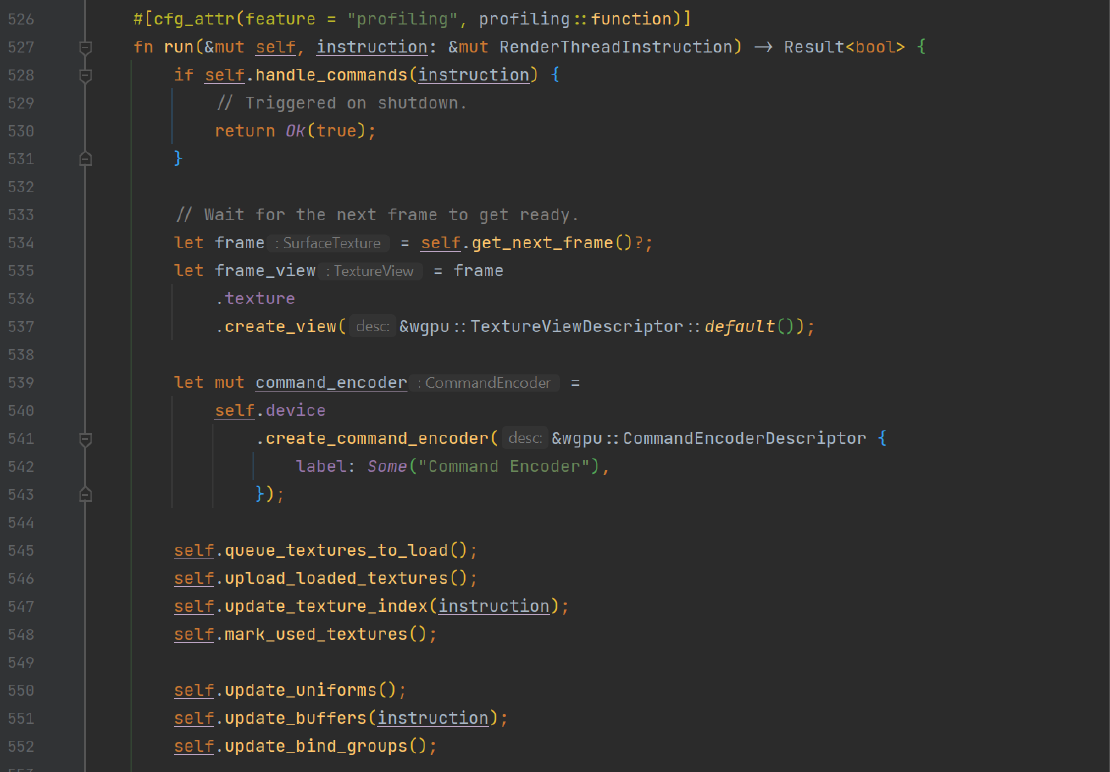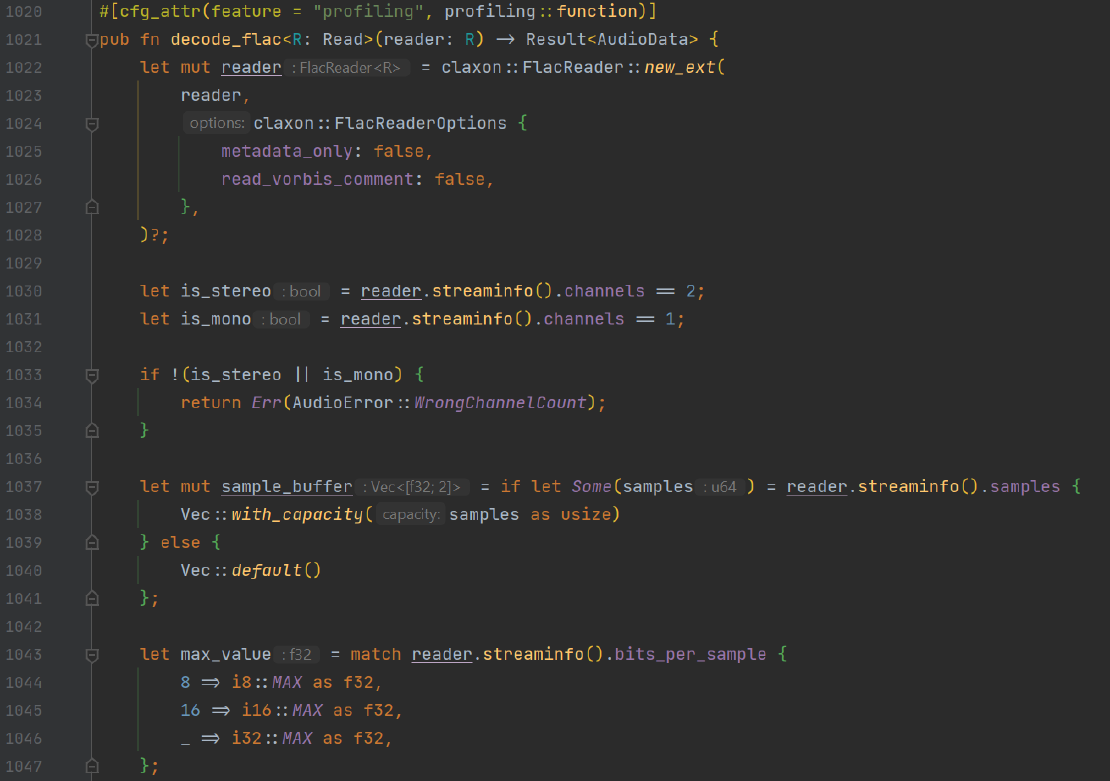We develop your projects agile in Rust:
- Greenfield
- Refactoring
- Porting legacy software
- Maintaining of existing projects
- Game engine development
- Async network services
We specialize in the Rust programming language. Rust is a modern programming language, which allows to write fast, secure and efficient programs. We support you implementing your projects in Rust and are at your disposal with our expertise.
Contact UsWe develop your projects agile in Rust:
We are happy to advise you on all topics related to Rust and its ecosystem.
All our training courses are offered digitally and we are happy to develop training topics tailored to your needs:
Rust is a compiled language that does not require a garbage collector. The LLVM backend of Rust generates optimal and efficient machine code. Through various ‘zero cost’ abstractions, higher level programming concepts are implemented efficiently without degrading runtime costs (e.g. traits or static dispatch).
Rust does not have a garbage collector. However, Rust establishes memory safety already at compile time by using the ‘borrow checker’. In Rust you can always be sure whether data is stored on the stack or on the heap and references are always guaranteed to point to valid memory.

The ‘borror checker’ of Rust prevents data races at compile time. You can therefore be sure that your program is free of data races already when compiling your project. The compiler supports you in writing safe and at the same time fast multi-threaded programs.
Rust has a first class tooling. Programs like ‘cargo’ (Build system and packet manager), ‘clippy’ (linting), ‘rustfmt’ (code formatter) or ‘miri’ (Undefined Behavior tester for ‘unsafe’ Rust) are provided by the Rust community and are first class in their field. There is also very good IDE support (rust-analyzer or the Rust plugin from Jet Brains). It is also possible to use debuggers and profiling tools for C / C++ for Rust.

Rust’s async ecosystem makes it possible to create secure, efficient, and high-performance web and network services. Projects like Tokyo are used by the major cloud platforms (e.g. AWS or Azure) to deliver world-class services to their customers. Next generation network protocols (e.g. QUIC) are also implemented in Rust to take advantage of Rust’s special features (e.g. quinn, quiche or neqo).
Game developers from all over the world write their games in Rust to put them on a secure, efficient and performant foundation. Native libraries can be very easily integrated via FFI and abstracted with a secure API. Modern graphics libraries like DX12, Metal, Vulkan or WebGPU can also be accessed easily and efficiently from Rust. In addition, there are many frameworks and engines that are developed with the help of Rust (e.g. Bevy, Dims or Geez).
Rust will become the second programming language used for the development of the Linux kernel besides C. The code of the ‘Rust for Linux’ team will soon find its way into the Linux kernel tree and soon the first drivers will be able to be written in Rust. It is expected that the use of Rust will allow an increase in security and easier onboarding of new developers.
Web Assembly (WASM) is the new execution layer of web browsers that allows developers to run high-performance code on the client. Rust is especially suitable for WASM because it has no garbage collector and can be compiled to very efficient WASM code. There are also frameworks to write single page applications (SPA) in Rust (e.g. Yew).